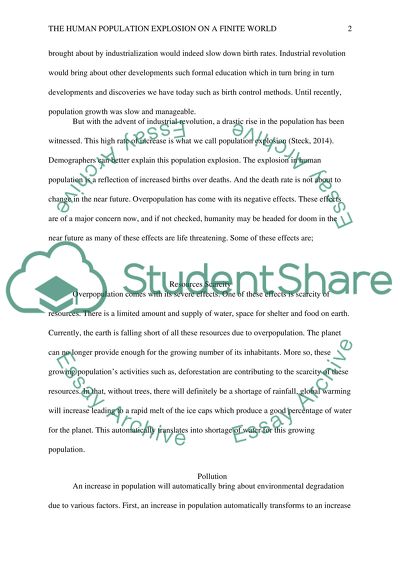Cite this document
(“The human population explosion on a finite planet: is there a limit to Research Paper”, n.d.)
Retrieved from https://studentshare.org/environmental-studies/1661832-the-human-population-explosion-on-a-finite-planet-is-there-a-limit-to-limitless-growth
Retrieved from https://studentshare.org/environmental-studies/1661832-the-human-population-explosion-on-a-finite-planet-is-there-a-limit-to-limitless-growth
(The Human Population Explosion on a Finite Planet: Is There a Limit to Research Paper)
https://studentshare.org/environmental-studies/1661832-the-human-population-explosion-on-a-finite-planet-is-there-a-limit-to-limitless-growth.
https://studentshare.org/environmental-studies/1661832-the-human-population-explosion-on-a-finite-planet-is-there-a-limit-to-limitless-growth.
“The Human Population Explosion on a Finite Planet: Is There a Limit to Research Paper”, n.d. https://studentshare.org/environmental-studies/1661832-the-human-population-explosion-on-a-finite-planet-is-there-a-limit-to-limitless-growth.


